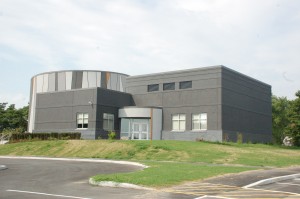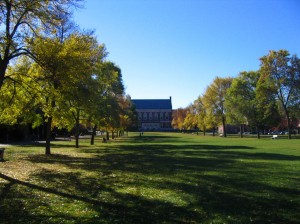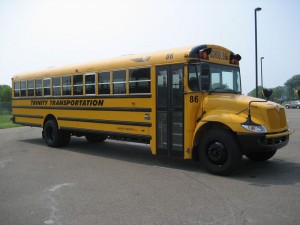Getting the Most out of Your Field Trip Experience
Overview
 Objectives: Students will be given preparation for a field trip to the Emera Astronomy Center or one of the University of Maine’s museums. Activities and discussions will set up expectations and create a comfort level with subject areas, and get students curious about their visit.
Objectives: Students will be given preparation for a field trip to the Emera Astronomy Center or one of the University of Maine’s museums. Activities and discussions will set up expectations and create a comfort level with subject areas, and get students curious about their visit.
Engaging Experience: Play a guessing game with students, using a list of words related to the field trip destination site. See how few words they need to hear before they can guess the destination. You might use some of the vocabulary words associated with the Teacher Guide for this.
Facilitation Guidelines
Before you go:
- Obtain all school and parental permission slips.
- Review the site’s policies on chaperones, lunches, parking, etc.
- Figure ample time to get to the astronomy center.
When you contact the site, find out when the best time of year is to visit. For many museums, the fall and winter are less busy seasons, so a visit then will not be so hectic for you. Ask about guided programs, and if possible, ask the staff to schedule your times to eat lunch and visit the shop so you will be guaranteed access. Ask about connections to State Curriculum frameworks. The Jordan Planetarium makes these explicit in their educational brochures. Ask about pre-visit activities. The Astronomy Center has curriculum guides to almost all of their planetarium shows. The map included with your confirmation packet will help in planning your visit and can also be used for pre-visit activities with students. Make a contingency plan, including where to eat lunch. There are multiple places on campus for such a break, including grassy lawns, picnic tables, reserved rooms, or dining commons. Determine if students should bring a bag lunch, or money to buy lunch and visit the gift shop.

Possible Pre-Visit Classroom Activities
- Brainstorm with students – Why go on a field trip? What do museums and planetariums have that can’t be duplicated in the classroom? Most museums offer access to objects and artifacts, some of which are too large or impractical to bring into a classroom. At the Jordan Planetarium, students can experience the stars and planets by direct experience and immersive media, instead of by just reading about them, watching videos, or creating classroom models. In addition, offer a chance to interact with knowledgeable staff and get questions answered. (Answering this question with students will also help you justify the value of a field trip to school administrators and parents.)
- Help students compile a list of questions to ask the specialist. Don’t wait until the day of your visit to think of things. Record them on a bulletin board whenever they come up, and bring the list on the day of the visit.
- Have students make nametags in a theme that is relevant to the site you are visiting. Students could select a site-related shape for the tag, or decorate with objects (stars, planets, spaceships, etc.) that relate to the visit.
On the Bus – Travel Activities
 Take a poll or survey: How many have been to the Jordan Planetarium before? What are you looking forward to the most?
Take a poll or survey: How many have been to the Jordan Planetarium before? What are you looking forward to the most?- Make predictions: How long do you think it will take to get there? Students can be given approximate mileage and average speed to calculate this. A small prize can be given to the one who comes closest to actual time.
- For the return trip, polls and surveys can be conducted about the visit. What did you like the best? What did you like the least? What did you see that surprised you most?
Make a ½ sheet worksheet with the questions for them to answer. Results from the class can be used to create histograms that can be circulated among students.
After the Trip
Compile notes about the logistics of the visit.
- Did the students learn and enjoy the experience?
- Was the planetarium show worth the trip?
- Were the specialists interesting? Friendly?
- Could another activity be incorporated to maximize the benefit?
Make a booklet with advice in it to give to a future class that comes, to help them avoid disappointments and to make the most of their visit. Student Assessment: Students will be asked to give oral presentations of observations made at the site, and to share any new questions that were raised by the visit. Students could be asked to develop a guide book to give to next year’s class before their visit. Students could also write a letter to education specialists at the site, listing their favorite experiences and making suggestions to improve exhibits or programs. Extension: How are astronomical events simulated in a planetarium? (Star Projector, Video, Still Pictures and Special effects)

